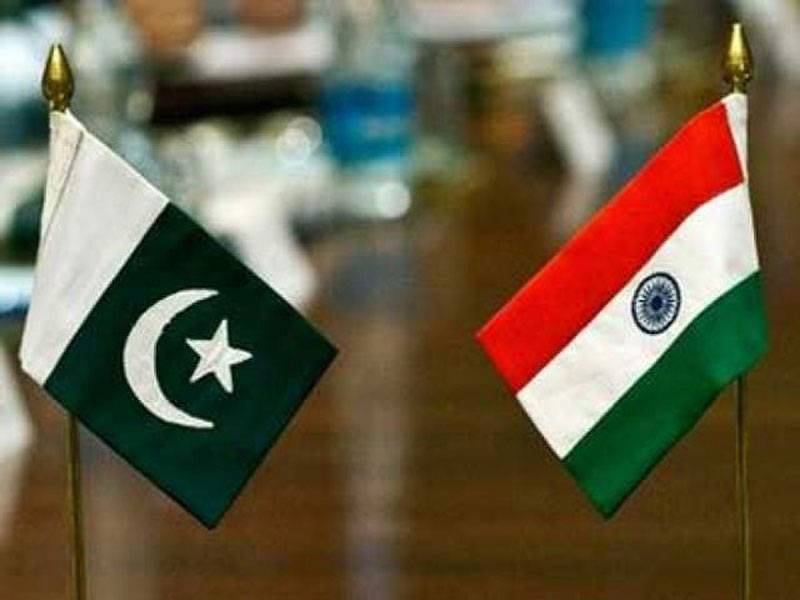ISLAMABAD - India on Friday launched new diplomatic offensive against Pakistan by trying to politicise the order for release of Mumbai attacks accused Zakiur Rehman Lakhvi by a superior court, a development seen by many as New Delhi’s another bid to stay away from peace talks with Pakistan.
The situation turned unpleasant when Indian External Affairs Ministry summoned Pakistan High Commissioner to India Abdul Basit after judicial relief granted to Lakhvi, and sought explanation from him about the development.
Pakistan followed the same approach when the Foreign Office summoned Indian Deputy High Commissioner JP Singh to lodge protest with New Delhi for unnecessarily creating media hype over the issue and summoning Pakistan’s High Commissioner.
Islamabad also lodged its strong protest with him over India’s deliberate delay in the trial of Samjhota Express terror attack. According to government sources, India, instead of creating hype and projecting the case in the media out of proportion, should have expressed its concerns as per diplomatic norms.
India on Friday gave a kneejerk reaction when the Islamabad High Court ordered the federal government to release Zakiur Rehman Lakhvi, saying that he could not be detained under Maintenance of Public Order (MPO) for an unspecified period.
“Pakistani agencies must produce incriminating evidence in the court of law in Pakistan. And there should be no discrimination in showing the character of terrorists. Terrorists cannot be bad or good terrorists,” India’s Junior Home Minister Kiren Rijiju told reporters. “They must ensure that Lakhvi doesn’t get out on bail and doesn’t get out of jail. If proper legal measures are taken then I am sure Lakhvi will not get out of jail.”
According to sources, India has been trying to create hype through its media out of nothing on the issue of Mumbai attacks. They said that the release of Lakhvi has nothing to do with Mumbai attacks trial, adding that Pakistan has always cooperated with India regarding the trial.
They were of the view that India adopting immature approach, has never allowed Pakistani prosecutors and defence lawyers access to the only ‘so-called’ perpetrator and eyewitness of the attacks, Ajmal Kasab. They said that India hampered the case by eliminating the only eyewitness without cross-examination. According to the sources, it is the fundamental principle of fair trial that the prosecutors of both the sides and defence lawyers cross-examine the witnesses, have access to the crime scene, documents and everything related to the crime.
About Samjhota Express terrorist attack, sources said that it was a gruesome, planned act of terrorism by the Rashtriya Swayamsevak Sangh (RSS) that always systematically manages to infiltrate Indian government departments whenever Bharatiya Janata Party’s is in power. The sources asserted that Indian media is highly biased and always played down the factual information.
Meanwhile, a government official while giving details of Mumbai terror attack and Samjhota Express bombing urged India to allow the judicial process to be completed. He said there is no justification for India creating hype and projecting the day to day proceedings at the court in the media.
The official said Pakistan took the Mumbai attack very seriously and besides arresting a number of persons, crossed-examined over 50 witnesses who were examined by the anti-terrorist court and proceedings are still going on. The official blamed India for not cooperating with Pakistan in Mumbai probe and providing very limited information which had been hampering the judicial process in Pakistani courts.
Pakistani officials provided all the information provided by India to the court, said the official. Pakistan has been cooperating with India, but there is very little cooperation from the Indian side in the investigation of Mumbai incident and India is not sharing anything with Pakistan regarding investigation into this incident, said the official. The official said India did not allow Pakistani prosecutors to investigate Ajmal Kasab and even denied the Pakistani Judicial Commission access to Ajmal before his execution in 2012.
Referring to Samjhota Express incident of 2007 in which 68 passengers, most of them Pakistanis, were killed, the Pakistani officials said there has been no progress on this case. The official said Hindu extremist leader Swami Aseemanand confessed before a judicial magistrate that he and his fellow RSS activists were involved in the bombing, but the Indian government did not make any reasonable progress in the case; even he was arrested and then released on bail.
Swami is said to be a leader of Rashtriya Swayamsevak Sangh, a Hindu group that has close ties with the ruling BJP. The Pakistani official said Pakistan’s concerns about delay in Samjhota investigation were conveyed to the Indian external affairs secretary when he visited Islamabad early this month.
Thursday, November 21, 2024
Pakistan, India trade demarches over Lakhvi trial

3:43 PM | November 21, 2024
Former test spinner and umpire Nazir Junior passes away at 78
3:59 PM | November 21, 2024
Suspected Bandit killed in Wazirabad police encounter
3:57 PM | November 21, 2024
Four monkeys cause stir in Karachi
3:55 PM | November 21, 2024
Russia confirms attack with UK-made Storm Shadow missiles on its territory
3:49 PM | November 21, 2024
PSX hits historic 97,000 mark amid positive investor sentiment
3:44 PM | November 21, 2024
-
Hunger crisis to increase in South Sudan, warns UN
-
Hunger crisis to increase in South Sudan, warns UN
-
Pakistan’s judiciary champions climate justice at COP29 in Baku
-
Punjab struggles with persistent smog as Met Office forecast rainfall
-
Punjab residents face escalating smog crisis as pollution levels soar across country
-
Qatar says Hamas 'no longer welcome' in Gulf state
Land of Vigilantes
November 21, 2024
United in Genocide
November 21, 2024
Finally Fighting Back
November 21, 2024
Digital Stagnation
November 20, 2024
Xi’s Red Lines
November 20, 2024
Independent Supreme Court
November 21, 2024
Fat Loss Fantasy
November 21, 2024
Tackle Corruption Within School Boards
November 20, 2024
To Be Opportunistic
November 20, 2024
Democratic Backsliding
November 20, 2024
ePaper - Nawaiwaqt
Nawaiwaqt Group | Copyright © 2024





